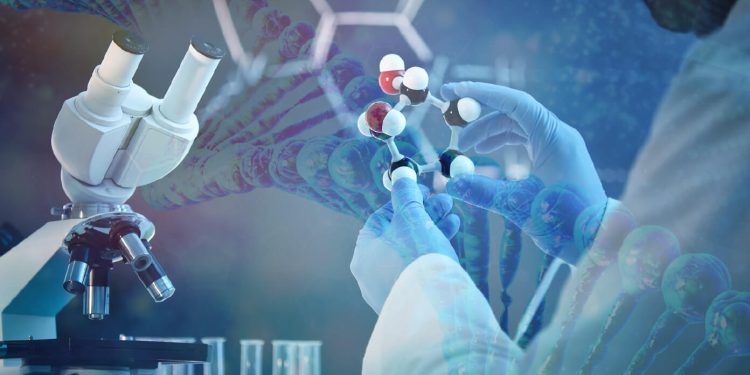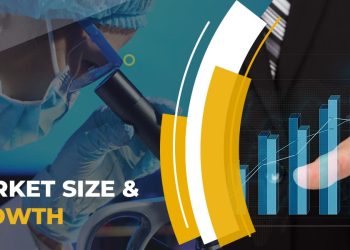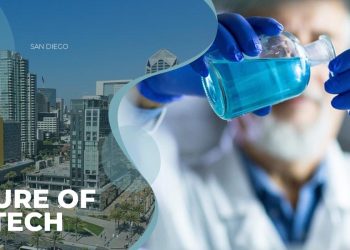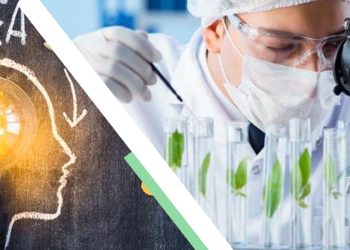Biotechnology is a vast field that can be combined with any other field and produce some next-level results. However, its application and use in pharmaceuticals are one of the most important.
Although biotech is still a relatively new field, it holds a lot of potentials. So far, it has been proven that it can be very beneficial for the production of medicine, drugs, and vaccinations.
This article will discuss the importance of biotechnology for the pharmaceutical industry and some of its applications. Without any delay, let’s begin!
Importance of Biotech in the Pharmaceutical Industry
Here are some of the things in the pharmaceutical industry that biotechnology has considerably improved:
- Biotechnology helps to create better processes for the pharmaceutical industry.
- Biotech helps in the production of new and better vaccines.
- It helps to produce medicine required by each genetic.
- Faster delivery of drugs by using the advancement that biotech has to offer.
- Helps to improve existing medicine and vaccines.
- When the pharmaceutical industry is combined with biotechnology, more jobs are created, which can help with unemployment issues.
Applications of Biotech in the Pharmaceutical Industry
There are certain fields of the pharmaceutical industry in which biotech has played a vital role. Following are some of the top aspects which have enhanced considerably with the combination of biotechnology.
1. Vaccines
The vaccine industry requires a large number of specialized resources. The basic concept of the pharmaceutical industry is to introduce medications that can cure one’s disease or pain.
However, with many trials, scientists concluded that not all illnesses could be cured with just medication. That is where vaccination came in. Although vaccinations aid in preventing many diseases, the pharmaceutical industry could not keep up with rapid changes in the environment and society.
When it decided to combine with biotechnology, new processes and development ideas came to the surface. The biotech and pharmaceutical industry were able to find a cure for multiple diseases such as Hepatitis B, Cardiovascular Disease, and a few others.
These diseases were declared uncurable, but the investment in biotechnology for research made it possible to cure them. However, there’s still much more room for improvement. If more resources were invested, this field would see advancements never thought possible!
2. Gene Testing
Gene testing is another application of the biopharmaceutical industry that has seen many successes in recent years. But what is genetic testing? Genetic testing is a medical test that helps identify any possible or existing genetic diseases or issues.
It recognizes the changes in one’s chromosome, protein, or gene. The results give an idea of any possible genetic diseases in the near future. Currently, more than 1000 of these tests are being used, and even more, are being created to be more advanced.
With the help of biotechnology, genetic testing has seen so much improvement. If there were more investments in this field, many issues could be solved even faster!
3. Recombinant Insulin
One of the first processes to be used with biotechnology was recombinant insulin. It is a process in which DNA parts are set apart and then put together again with a new combination.
Recombinant insulin is usually a process for diabetic people to remove excess sugar from their blood. They have little to no insulin in their body. This particular process helps them receive insulin to control their glucose.
Scientists figured out that a pig’s pancreas produces insulin that humans can use. However, pigs gave very little insulin, and there weren’t enough of them to provide the required insulin quantity.
That is the point where biotechnology really helped lift this process. Biotech allowed the cloning of the human insulin gene to enhance the recombinant insulin process. And you wouldn’t believe it, but it worked!
4. Molecular Diagnosis
Molecular diagnosis is another application of biotechnology in the pharmaceutical field. It is a process in which scientists identify a disease by closely looking at molecules. Often, the pathogen’s concentration increases considerably by the time a disease is diagnosed.
To avoid this complex situation, in-depth knowledge of pathophysiology and its diagnosis is vital. Biotechnology enhances molecular diagnosis to another level. It can be achieved through specific biotech processes such as PCR or ELISA.
5. Pharmacogenomics
Pharmacogenomics, also known as pharmacogenetics, is the study of an individual’s genes and how it responds to certain medicines. This process helps doctors pick the best-suited medicine according to the gene’s requirement.
In the past century, medicines were designed for the general public. It was good until many cases showed that it wasn’t suitable for all types of genes. Those medicines didn’t treat people as an individual. Different genes had different reactions because their requirement was different.
However, thanks to biotechnology, nowadays, there are drugs that are best for an individual’s genetics instead of the general public. The best thing about pharmacogenomics combined with biotechnology is that it can be used for diseases such as HIV, asthma, and depression.
Summing Up
Despite the fact that biotechnology was recently discovered and applied to many fields, results have shown that this industry holds many potentials. It goes for the pharmaceutical industry especially!
There are a lot more health issues now compared to a century ago. That is due to environmental changes and global issues. That is the primary reason why biotechnology is so crucial in the applications of pharmaceuticals.
Another major reason for implementing biotech in pharmaceutical industries is that the products produced by biotechnology are priced much lower. Typical products have crazy high prices, which aren’t normally affordable.
When pharmaceutical and biotechnology come together, it produces nothing but better results for the whole of humanity! It prescribes medicine and drugs according to each genetic, which is what is required.
Also Read: Adapting to Trends in The Pharmaceutical Industry








